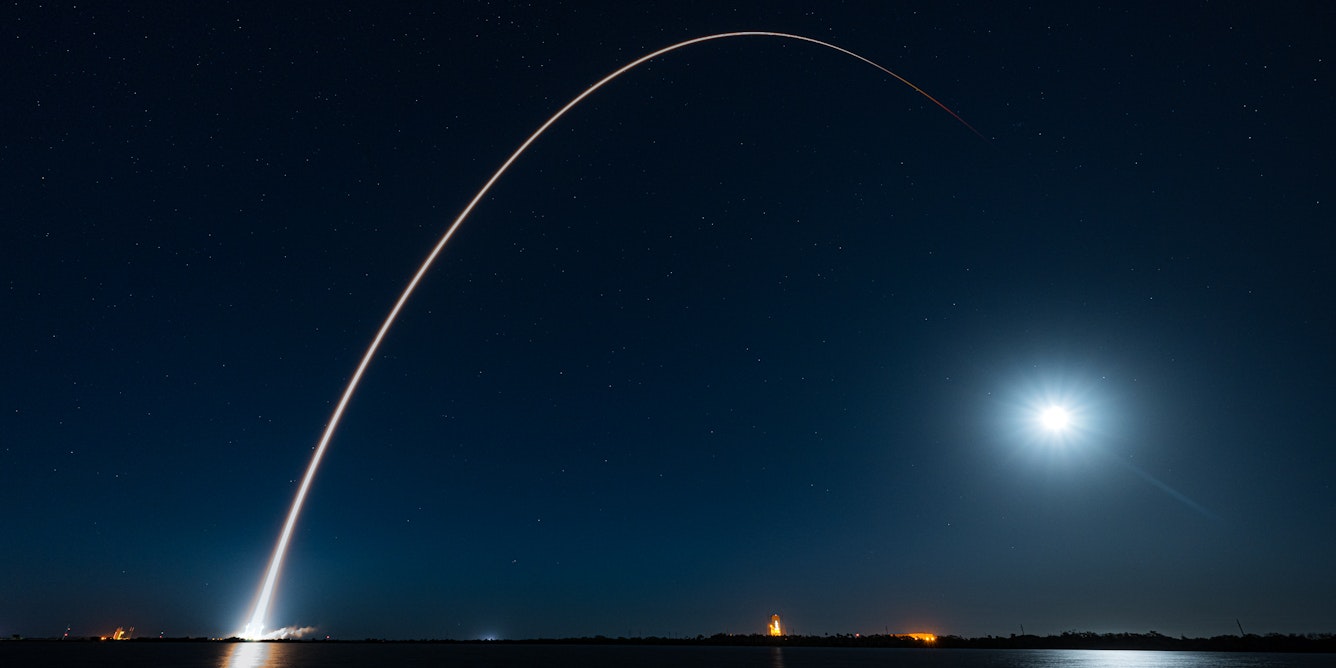A US-based startup, Reflect Orbital, has announced ambitious plans to create “sunlight on demand” by launching a constellation of giant mirrors into space. The goal is to reflect sunlight down to Earth, allowing solar farms to continue operating long after sunset. The company has applied to launch its first 18-metre test satellite, Earendil-1, in 2026.
This initial test is intended to be the first step toward a massive constellation of about 4,000 satellites, each equipped with a 54-metre mirror, by 2030. However, astronomers and physicists have raised significant concerns about both the project’s feasibility and its potential to create devastating light pollution.
A Critical Look At The Physics
While bouncing sunlight off a mirror is simple, the physics become complicated at an orbital altitude of 625km. Because the Sun is not a single point of light, its reflected image will spread out.
According to analysis from astronomers, a beam of sunlight reflected from a satellite at an 800km distance (a realistic angle) would illuminate a patch of ground at least 7km across. This diffusion means a single 54-metre mirror would deliver light 15,000 times fainter than the midday Sun. To achieve the company’s goal of 200 watts per square metre (20% of the midday Sun), it would require 3,000 satellites focusing on the exact same 7km spot.
The Challenge of Speed And Scale
A second major hurdle is orbital mechanics. A satellite at a 625km altitude travels at 7.5 kilometres per second, meaning it would be within range of a specific location for no more than 3.5 minutes.
To provide even one hour of continuous power to a single solar farm, a constellation of tens of thousands of satellites would be required. Some reports note the company’s ultimate ambition is a fleet of 250,000 satellites—more than all currently catalogued satellites and space junk combined.
Relevance To The MENA Solar Revolution
The promise of Reflect Orbital’s technology is highly relevant to the MENA region, a global leader in utility-scale solar energy. Nations like the UAE, Saudi Arabia, Morocco, and Egypt have invested billions in massive solar farms as a cornerstone of their renewable energy strategies.
A key challenge for these solar assets is the intermittency of sunlight, a problem currently solved with expensive battery storage. A technology that could extend the operating hours of these plants into the night would be a game-changer, aligning perfectly with regional goals for 24/7 clean power and economic diversification.
A New Era Of Light Pollution
While the energy promise is significant, the environmental cost could be severe. Astronomers warn that a constellation of thousands of giant mirrors would be “devastating” to their field and to the night sky.
It is calculated that even a single one of these satellites could appear “far brighter than the full Moon,” risking permanent eye damage to anyone looking at it through a telescope. This unprecedented light pollution would also impact the daily rhythms of animals. While Reflect Orbital states it plans to avoid observatories, the satellites’ beams would still sweep across the Earth, creating flashes of brilliant light in the night sky.
About Reflect Orbital
Reflect Orbital is a US-based startup founded by Ben Nowack. The company aims to revolutionize the energy sector by providing “sunlight on demand” from space. Its business model is based on deploying a large constellation of orbital mirrors to illuminate solar farms and other target areas on Earth after dark.
Source: The Conversation














